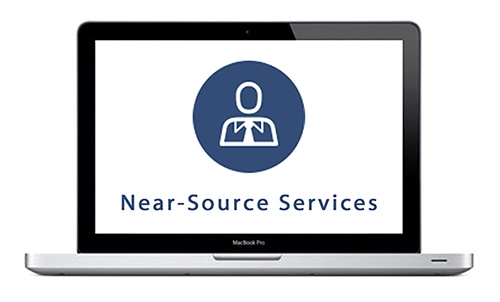Whether you’re running a business or you’re just a regular person, your private data is incredibly valuable and must be protected at all cost. If the wrong person gains access, that exposes you to a series of dangers that can very seriously impact you financially, legally, and even psychologically. It’s essential to be aware of the risks you are taking, as well as what you can do to prevent this kind of damage from happening, in the first place.
Here are 5 dangers you are exposed to when your data is vulnerable.
1. Financial fraud
One of the most obvious dangers – and one of the most damaging ones – is financial fraud. If your computer is not secured properly, it is ridiculously easy for someone to gain access to your information. What a lot of people don’t realize is that this information includes things like passwords and account info from credit cards and bank accounts.
Once a person can successfully use this information, they can bring you to financial ruin. Your credit card information can be used online with no physical card necessary, especially if you’ve saved your details on websites you use often. Data breaches happen often and they affect millions of people who then have to detangle the mess that is left in their wake.
In addition, your accounts could even possibly be drained. Again, the only thing they need is your account info and password to be able to log into your online banking account and do serious damage.
How to prevent it: Don’t keep your payment into saved on websites you shop on. Sure, it’s way more convenient to save your card on Amazon than to look for it and type in the details every single time you make a purchase, but you realize those extra 30 seconds are worth it when there’s a data breach and someone in Colorado is using your credit card to make fraudulent purchases worth thousands of dollars.
2. Identity fraud & impersonation
The other very serious (and unfortunately common) type of fraud is identity fraud, and that goes hand in hand with financial fraud. You see, when someone gets their hands on sensitive information such as your Social Security Number (SSN), the damage they can do is extensive, and potentially with no time limit.
SSNs are notoriously difficult to re-issue, so even if you fall victim to identity fraud, you will not get a new one. Instead, you will have to deal with the problems that stem from it for the rest of your life. When someone commits identity fraud in your name, they are able to get loans (such as mortgages or car loans), issue credit cards, do your taxes, become employed, and commit felonies that will be attributed to your name.
The ramifications are vast and long-standing, and there are thousands of victims that are still dealing with the fall-out decades later, including with things like a tanked credit score.
How to prevent it: Safeguard your sensitive information, and try not to keep it on your computer, if possible. If you’ve got any important documents, keep them in a safe or in a lockbox at the bank, if there are no safe places in your home. Keeping them on your computer is an invitation for someone to steal your information and use it. It’s enough for someone to steal your laptop or gain access to it for a few moments for them to do serious damage.
Freezing your credit is an excellent way to protect yourself against identity theft in a world where data breaches and hacks are becoming more and more common. But credit freezes aren’t designed to last forever. At some point, you’ll need to lift the freeze your credit, maybe because you’re applying for a new credit card or a new apartment. Learn more about thawing credit freezes here....
3. Malware
Every spam email, suspicious pop-up notification, and sketchy message could be an excuse to infect your computer with harmful malware or spyware. We don’t even realize how easily someone could unlock files we think are “safe” on our computers. There’s all kinds of software that allows one to unlock your passwords and gain access to otherwise safeguarded info that you wouldn’t want falling into the wrong hands.
In addition, your computer may be used for illegal coin mining, or your important data may end up being deleted for no real reason, other than wreaking general havoc. Not to mention the viruses that can infect your computer and compromise not only all of your important files, but also the computer itself. There’s nothing innocent about malware.
How to prevent it: Don’t click on any links, images, offers, or pop-ups that look suspicious or that you did not invite. Emails are especially guilty of this kind of thing, and sometimes the spam filter misses them, so it’s up to you to keep an eye out. If you don’t recognize the email address or the subject and content of the email are super generic, don’t click any links. And none of those offers and things you “win” online are real, either, so no need to click.
4. Harassment & cyberbullying
Online harassment is, unfortunately, a problem a lot of people deal with, some of them very young. And while schoolyard bullying is damaging enough, it’s not nearly as damaging as cyberbullying can be. When a person gains access to your computer, there is the potential for them to find all sorts of sensitive and personal information, including potentially dangerous, hurtful or embarrassing facts.
They can then taunt and harass the person in private, or they can even make this information public, thus severely impacting the person socially. Intimate photos that are exposed publicly are often a reason for cyberbullying, including “revenge porn” sites where the photos or videos are uploaded and made public without permission.
This can have extremely dangerous consequences, especially in situations where the person has their sexuality outed against their will, which can lead to emotional or physical violence. There have been many cases of victims committing suicide as a result of cyberbullying.
How to prevent it: Guard your sensitive information by uploading it to cloud storage or keeping it on USB sticks or external hard drives, if you must. In addition, exercise caution and avoid creating visual, video, or audio evidence of compromising situations. If you have intimate files or information, do not send them to anyone, especially people you do not know well.
5. Extortion & blackmail
But your private or sensitive information can’t only be used to bully you – it can also be used to blackmail you, or otherwise extort money from you. When a person gets their hands on information you would do anything to keep private or that could put you in danger or make things uncomfortable for you, they may use that to their advantage to pressure you into doing things for them or giving them money.
It’s very important – as with all of these instances of online targeting and harassment – that you report these incidents and don’t give into blackmail and extortion. Not only are you allowing them to carry on with something illegal and take advantage of you, it will also never come to an end, once you show willingness to give them what they want.
How to prevent it: Making sure there is no sensitive information to exploit is the first step, so try not to have anything you wouldn’t want anyone else to see. Otherwise, try to keep this kind of information closer to your person, rather than on your computer. If you do keep these files in digital format, either store them in the cloud, or lock your files and encrypt them with more than just a regular password that can be easily circumvented.
Conclusion
As you can see, online safety is nothing to play around with. We may ignore all the PSAs, but they draw attention to serious phenomena that are more and more common and that harm thousands of people every year. From identity theft to financial fraud and cyberbullying, being a victim of these crimes can negatively impact your life in so many different ways. That’s why it’s important to not only employ smart and safe behaviors online and in relation to data protection, but also take advantage of the latest software that can encrypt and protect your sensitive data.



You must be logged in to post a comment.